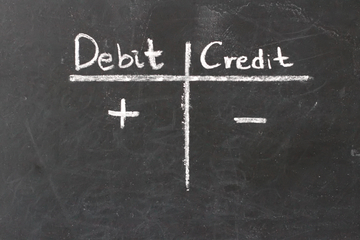Do you have a budget? Is this budget written down, updated, and referenced to ensure you're on track? If you answer no, you're not alone. In fact, only 32% of American households prepare a monthly budget. More so, 65% of Americans said they didn't know how much they spent last month. Together these two statistics can help explain why almost half of Americans (49%) wouldn't be able to cover a $400 emergency expense.
While budgeting isn't the end-all and be-all to your financial woes, it can certainly help improve your financial position. And budgeting is a lot easier than you think. Let's take a closer look at how to create a budget and critical budgeting methods you can use to improve your financial fitness.
What Is a Budget?
Budgeting is the process of creating a plan to manage your money. The budget is an estimation of how much you make vs how much you spend over a certain period of time. Over time, your budget will evolve and change as your financial situation changes. As such, it's imperative to view your budget as a living and breathing document.
Why Do I Need a Budget?
Regardless of how much you earn, everyone should have a budget — not just those living from paycheck to paycheck. When you have a budget, you are more likely to put your money to work in the best ways possible and live within your means. Here are a few reasons why budgeting is important:
What Should I Include in a Budget?
Every budget, no matter the shape or type, should include certain fundamental elements:
Once you have these main categories established, you can further delineate them based on your personal situation. Let's take a closer look at each.
Income
The income part of the budget is pretty straightforward: how much money do you earn over a specific period? There are two categories of earnings:
It's important to use your after-tax, take-home pay for budgetary purposes.
Expenses
When it comes to budgeting, not all expenses are created equally. As such, you should separate your expenses into three separate categories:
Fixed Expenses
These expenses are necessary and remain the same from month to month. Examples of fixed expenses include:
Simply put, if you can't change what you pay each month, it's a fixed expense. However, there are creative ways of reducing fixed expenses. For example, if you live alone, getting a roommate could be an excellent way to save on fixed expenses.
Flexible Expenses
As the name suggests, flexible expenses can vary each month. While these expenses are mostly necessary, it's often easier to reduce flexible expenses when compared to fixed expenses. Examples of flexible expenses include:
Discretionary Expenses
Discretionary expenses are not necessary, but everyone has them. Also called wants — discretionary expenses are the easiest to cut or reduce if you're in a crunch. Examples include:
Savings
Last — but definitely not least — is the savings category. And it's imperative to do so, no matter the amount. Your savings section could further spike out to outline:
Different Budgeting Methods
When it comes to budgeting, there are no one-size-fits-all solutions. Instead, there are a number of methodologies you can use to learn how to create a budget. Some of the most popular budgeting methods are discussed below.
50/30/20 Budgeting Method
Popularized by U.S. Senator Elizabeth Warren in her book, All Your Worth: The Ultimate Lifetime Money Plan, the 50/20/30 budget rule keeps things simple. With this budgeting method, you will split your take-home or after-tax income into three categories:
Incremental Budgeting System
Incremental budgeting is a type of traditional budgeting where your actual current performance serves as your baseline. Then you can incrementally add or subtract from categories for the new budget period. Proponents of this budgeting system suggest it's easier because you can make smaller and less-noticeable changes to achieve your financial goals.
The Envelope System of Budgeting
The envelope budgeting system is a relatively simple process where you will create a written budget, allotting funds for each category of spending. Then, you will physically divide up the cash into separate envelopes based on the spending categories you've created. With envelope budgeting methods, you will only use what is in each envelope, making it virtually impossible to overspend.
Pay-Yourself-First Budgeting Methods
If your primary focus is on saving money, Pay-Yourself-First budgeting methods may be the perfect solution for you. As the name suggests, this budgeting method involves paying yourself first and setting money aside to achieve your savings goals. Then, you can use the rest of your funds as you wish. This budgeting method is also easier for those who do not have time or the willingness to track expenses.
Zero-Sum Budgeting Methods
Also called the zero-sum budgeting method, this process encourages you to give every cent of your take-home pay a real purpose. With this method, you will allocate all of your money to savings, expenses, and debt payments each period. The ultimate goal is for your income and expenditures to have a zero-sum balance at the end of the period. If you do come in under budget in a particular category, you can move the proceeds to a different category, such as an emergency fund. Or you can move the overage to the next period. Zero-based budgeting methods are very similar to envelope methods.
Regularly Review Your Budget
Whether you use the zero-based budgeting method, envelope system, 50/30/20, or any other method, they must be reviewed regularly. Simply put, no budget is designed to be "set it and forget it." By performing regular budget reviews, you will be more likely to:
Most importantly, you'll be better equipped to feel confident about each financial decision you make.
Integra Credit Can Help Simplify the Budgeting Process
We get it, budgeting can be tough. It can be further complicated when you are required to make multiple payments to different credit cards. And when you throw in the random emergency expense, you can easily rip the most air-tight, well-planned budget to shreds. Fortunately, a personal loan through Integra Credit can help you weather the storm and navigate the best path forward.
Contact Integra Credit today for your personal lending needs.
FAQs About How to Create a Budget
What's the Difference Between Expense Tracking and Reviewing My Budget?
Think of it this way: expense tracking is how you stay on track to live within your bi-weekly or monthly budget. On the other hand, reviewing your budget is how you stay on track to achieve your short-term and long-term goals.
How Often Should I Review My Budget?
The average person should review their budget once a month. The review would normally take place at the end of the month. That way, you are able to see an accurate representation of both expenses and income for the month. Some people prefer to do a budget review every time they get paid. It depends on what works for you.
How Often Should I Track My Expenses?
You should make it a habit to track your expenses daily. If you only track your expenses once a month, you will be unable to adjust your spending habits to remain within your monthly or bi-weekly budget.
Is It Better To Budget Weekly or Monthly?
A general rule of thumb is to budget at least once a month towards the end of the month to see everything you spent and earned that month. However, there is no right answer to budgeting weekly or monthly. If you want to budget weekly, and that fits into your schedule, you can. If you want to budget monthly to get a larger picture, you can also do that.
Sources
https://www.creditdonkey.com/budgeting-statistics.htm/ https://www.moneygeek.com/financial-planning/resources/guide-to-getting-on-a-budget/ https://www.fool.com/the-ascent/personal-finance/articles/49-of-americans-couldnt-cover-a-400-emergency-expense-today-up-from-32-in-november/ https://mint.intuit.com/blog/budgeting/spending-knowledge-survey/ https://www.nerdwallet.com/article/finance/what-is-a-budget/ https://mint.intuit.com/blog/budgeting/what-is-budget/ https://consumer.gov/managing-your-money/making-budget/ https://corporatefinanceinstitute.com/resources/knowledge/finance/incremental-budgeting/ https://www.investopedia.com/envelope-budgeting-system-5208026/ https://www2.deloitte.com/us/en/pages/operations/articles/zero-based-budgeting.html/



